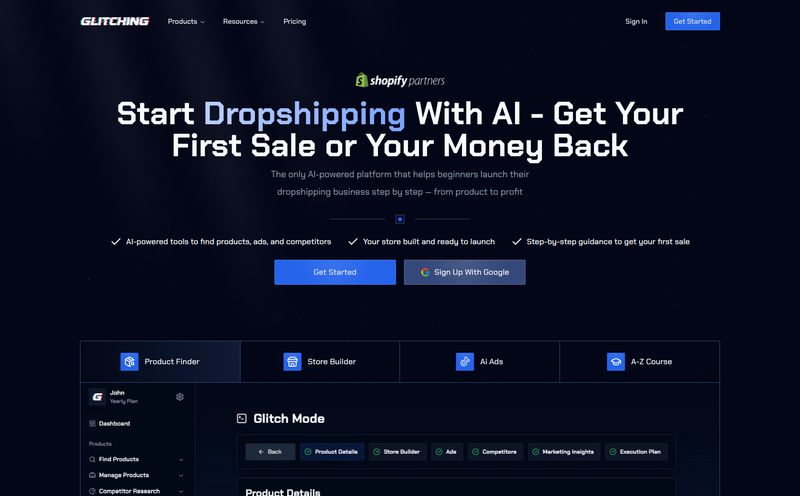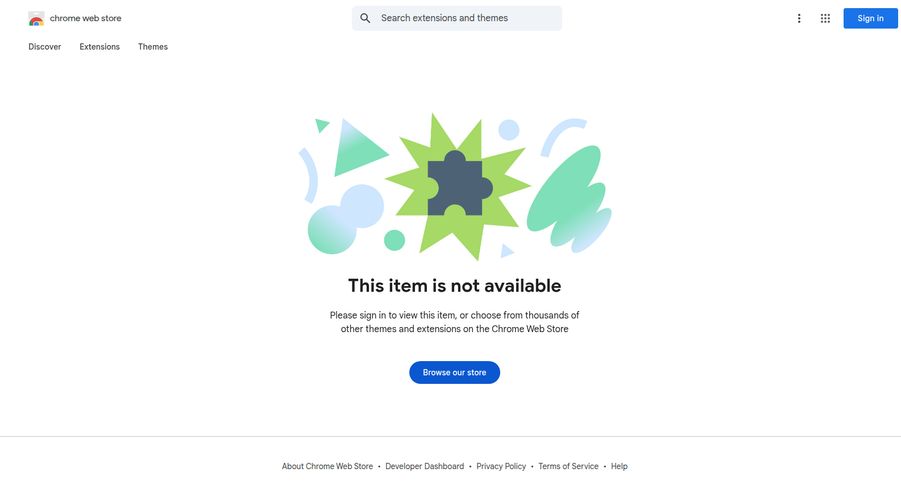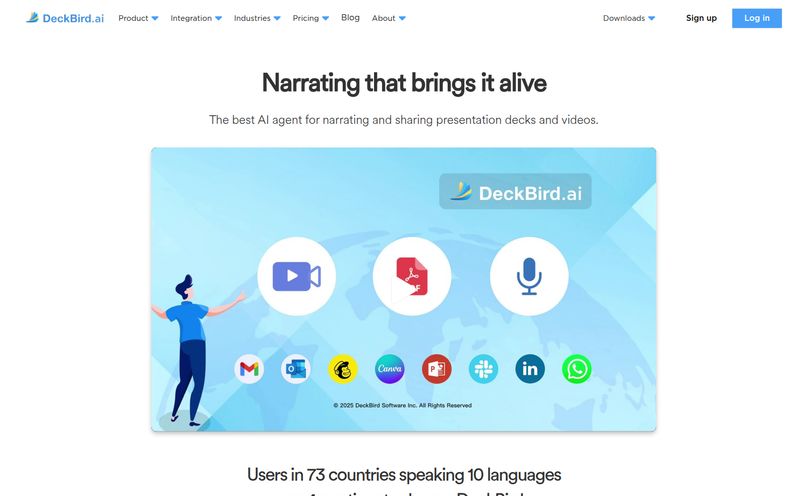Alright, let’s have a real chat. If you’ve been in the SEO or content marketing game for more than five minutes, you know the feeling. The blank page staring back at you. The endless spreadsheet tabs for keyword research, competitor analysis, and topic ideas that start to blur into one giant, anxiety-inducing mess. Content strategy is, for lack of a better word, a grind. It’s the foundational work that everyone knows is important, but nobody really enjoys doing. It’s like building the foundation and framing of a house—absolutely essential, but you’d rather be picking out the furniture.
For years, I’ve cobbled together my strategies using a cocktail of tools: Ahrefs, SEMrush, Google Trends, AnswerThePublic, and a whole lot of gut instinct honed over a decade of wins and losses. It works. But it’s slow. And sometimes, you just hit a wall.
So when I heard about a platform called Content Codex that claimed to use AI to generate a full-blown, data-backed content strategy in minutes, my cynical SEO heart skipped a beat. Part of me thought, “Here we go again, another AI gimmick.” But the other, more curious part, the part that’s sick of spreadsheet-induced migraines, thought, “...what if it actually works?”
So I did what any self-respecting digital marketing nerd would do. I signed up and took it for a spin.

Visit Content Codex
So, What Exactly Is Content Codex?
Let’s clear one thing up right away: Content Codex is not another AI writer like Jasper or Copy.ai. It doesn’t spit out blog posts. Instead, it acts as the architect, the strategist, the brains behind the entire operation. Think of it as an AI-powered consultant that hands you a comprehensive blueprint for your entire content marketing plan. You still have to build the house (or, you know, write the articles), but you’re not starting with a vacant lot and a vague idea anymore.
The platform takes your business description, your target audience, and your goals, and then uses its AI magic—powered by GPT-4 Turbo on the paid plans—to create a shockingly detailed plan. We’re talking buyer personas, content pillars, topic clusters, keyword suggestions, social media angles, and even business ideas you might not have considered. It’s designed to be the answer to the dreaded question, “What the heck should we be creating content about?”
My First Impressions and Getting Started
Signing up for the free plan was painless. The user interface is clean, minimalist, and doesn’t overwhelm you with a thousand buttons and menus. It’s refreshingly simple. You’re basically presented with a form to describe your project. For my test, I invented a small, sustainable e-commerce brand selling artisanal coffee beans.
I fed it the details: target audience (eco-conscious millennials), brand voice (knowledgeable but friendly), and key products. I hit the “generate” button, grabbed a cup of coffee (how fitting), and waited. A few minutes later, it was done.
And honestly? I was floored. It didn’t just give me a list of keywords. It produced a multi-page document that felt like the output of a junior strategist after a week of solid work. It had identified three distinct customer personas, mapped out four content pillars (like “Brewing Guides” and “Sustainability in Coffee”), and suggested a dozen blog post ideas under each pillar. It was… coherent. It was a real strategy.
The Core Features I Actually Cared About
A tool can have a million features, but only a few usually matter in the day-to-day. Here’s what stood out to me.
The AI Strategy Generator is the Main Attraction
This is the heart of Content Codex. On the Professional plan, the output is a 50+ page PDF. That sounds like overkill, but it’s surprisingly well-organized. It gives you the ‘why’ behind the ‘what’. It doesn’t just say “target the keyword ‘best single origin coffee’.” It builds a whole topic cluster around it, suggesting articles on different brewing methods for that coffee, its origin story, and farmer profiles. This is exactly the kind of hub-and-spoke model that Google loves and that I preach to my clients. Seeing a machine generate it so quickly was both impressive and slightly terrifying for my job security. Kidding. Mostly.
Beyond the Strategy: The Dashboard and Analytics
Once your strategy is generated, it doesn’t just live in a PDF. It populates a project dashboard where you can track your ideas. It’s not a replacement for a full-on project management tool like Asana or Trello, but it’s a great way to keep your content plan from getting lost in the digital ether. The analytics are more about the strategy itself—what was generated, the key themes—rather than post-publication performance tracking, which you’d still use Google Analytics for.
Custom Branding for the Agency Folks
This is a big one for freelancers and agencies. The ability to export that massive, impressive strategy document with your own logo instead of the Content Codex branding is a game-changer. You can run a client’s details through the tool, spend an hour refining the AI’s output with your own expertise, and then present a beautiful, branded strategy document. It dramatically cuts down on the initial legwork and makes you look incredibly efficient.
Let's Talk Money: Content Codex Pricing
Okay, the all-important question. Is it worth the cost? The pricing is broken down into three main tiers, which I found pretty straightforward.
| Plan | Price | Who It's For |
|---|---|---|
| Solo (Free) | Free | Personal projects, students, or just for taking a test drive. The "non-commercial use" license is the key limitation here. |
| Professional | Starting at $29 | The sweet spot. For solo entrepreneurs, small businesses, and freelancers. You get the GPT-4 Turbo power, the full 50+ page report, and the all-important commercial use license. |
| Enterprise | Custom | Agencies and large businesses. This tier unlocks white-labeling, API access for integrations, and bulk discounts. |
In my opinion, the Professional plan offers immense value for its starting price. The amount of time it saves you would cost hundreds, if not thousands, of dollars in manual labor or consultant fees.
The Honest Truth: The Good, The Bad, and The AI
No tool is perfect. After the initial “wow” factor wore off, I took a more critical look.
What I Loved was the sheer speed and idea generation. It’s an incredible cure for writer’s block and strategic paralysis. It’s like having a brilliant, if slightly naive, junior strategist on call 24/7. It gives you a fantastic starting point and helps you see your own business from a different perspective.
What Could Be Better? The free plan is quite limited and really just a taste of what the tool can do. The main drawback, though, isn’t really a fault of the tool itself but a necessary reality of using AI: you still need a human. You can't just take the 50-page report and follow it blindly. An experienced marketer needs to act as the editor-in-chief. You have to reality-check the suggestions, refine the tone, and inject your brand’s unique soul into the plan. The AI gives you the skeleton, you have to add the heart.
Who Should Use Content Codex? My Final Verdict
So, who is this actually for? I see a few clear winners here.
- Small to Medium Businesses: If you're a business owner wearing a dozen hats, this is a godsend. It gives you a professional-grade content strategy without the professional-grade price tag. It’s a roadmap you can actually follow.
- SEO Agencies & Freelancers: The Professional and Enterprise plans are ridiculously valuable. Use it to fast-track your initial strategy for new clients, generate ideas for existing ones, and add a powerful, tech-forward tool to your arsenal.
- Solo Creators and Bloggers: If you're serious about turning your project into a business, the Professional plan is a worthy investment. It will give you enough content ideas to last a year and ensure you’re building your brand on a solid, strategic foundation.
Is it for a massive enterprise with a 20-person marketing team? Maybe not as their primary tool, but even they could use it for quick brainstorming and new project ideation. The Enterprise plan with API access could certainly find a home there.
Is It a Gimmick or a Game-Changer?
After spending some real time with it, I can confidently say Content Codex is not a gimmick. It’s a legitimate power tool for a part of our job that is notoriously time-consuming. It won't replace skilled human strategists, nor should it. What it does is automate the most laborious parts of the process—the initial research, the brainstorming, the structuring.
It’s the ultimate creative partner. It clears away the debris so you can focus on what matters: creating truly great content that connects with your audience. For me, it’s already earned a spot in my digital toolkit. The days of dreading a new content strategy project are, thankfully, over.
Frequently Asked Questions about Content Codex
- Is Content Codex a content writer?
- No, it's a content strategist. It creates the plan, the topics, and the structure, but it doesn't write the final articles or social media posts for you. You or your team will still handle the creative execution.
- Can I use the free Solo plan for my business website?
- According to their terms, the free plan is for non-commercial use only. If you're running a business or monetized blog, you'll need to upgrade to the Professional plan to get the commercial use license.
- How long does it take to generate a content strategy?
- It's surprisingly fast. For my tests, a full, basic strategy was generated in just a few minutes. The depth and speed make it an incredibly efficient tool for brainstorming and planning.
- Is the content strategy it generates unique?
- Yes. The strategy is custom-generated based on the specific inputs you provide about your business, audience, and goals. Two different users will get two completely different strategies.
- Will the AI's keyword research replace tools like Ahrefs?
- I wouldn't cancel your Ahrefs subscription just yet. Think of Content Codex as a starting point. It provides excellent keyword ideas and topic clusters, but for deep, competitive data like search volume, difficulty, and backlink analysis, you'll still want a dedicated SEO tool.
- Is Content Codex worth the money?
- In my professional opinion, yes. For businesses and creators who are serious about content marketing, the time saved and the quality of the strategic foundation it provides easily justifies the cost of the Professional plan.



